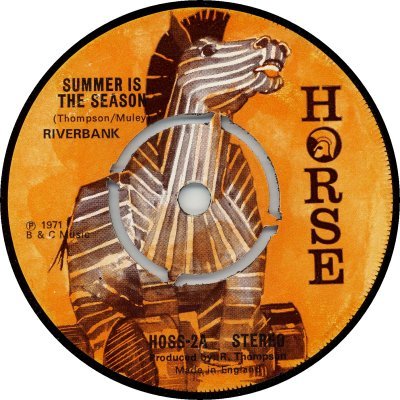
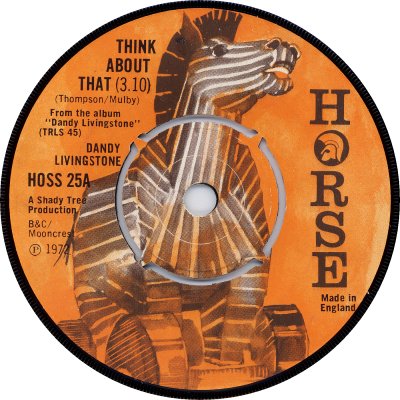
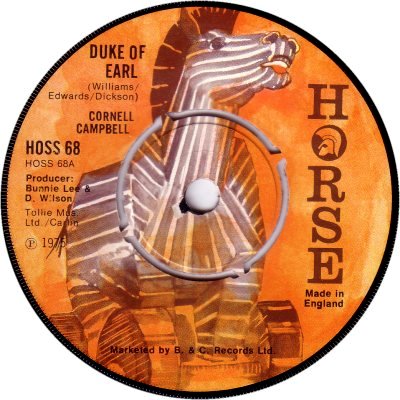
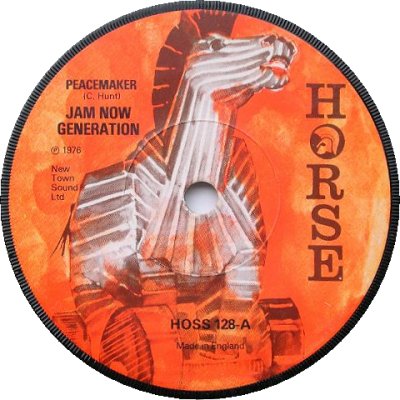
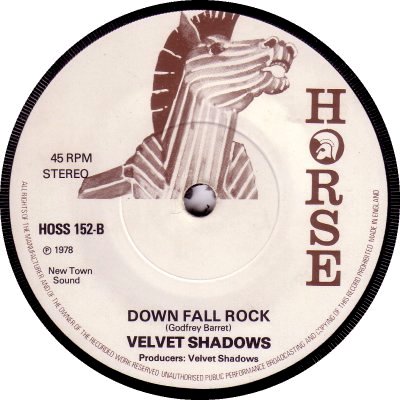
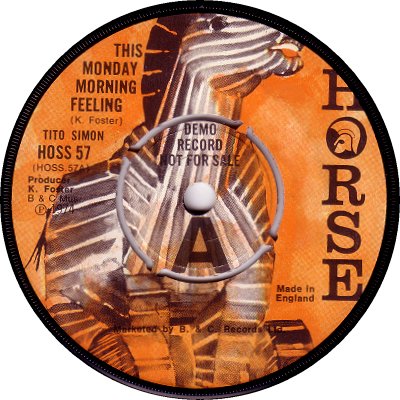
A Reggae label; part of the Trojan group. According to 'Record Retailer' of the 27th March 1971 Horse was intended to be a Pop label, and most of its early releases were Pop or Soul records, but it soon turned to Reggae, albeit often of a commercial, Pop-flavoured sort. It hit the singles charts with Scott English's MOR Pop ballad 'Brandy' (HOSS-7; 1971) and with a couple of Reggae singles from Dandy Livingstone, 'Suzanne Beware of the Devil' (HOSS-16; 1972) and 'Big City' (HOSS-25; 1973). Horse proved to have some staying power. It survived the cull of labels which took place after Lee Gopthal's B&C company gained sole control of Trojan, in October 1972 ('Music Week', 21st October); and then after the original Trojan company went into liquidation, in the summer of 1975, it emerged as a component of the new company Trojan Records Limited, which had been bought by the Saga group. It managed a respectable number of releases under its new owners, but the last of them came in 1978, by which time catalogue numbers had reached HOSS-158. A few singles scheduled for the middle of 1975 seem not to have been issued; presumably they fell victim to B&C / Trojan's financial problems.
For most of its life the Horse label used the one design, appropriately featuring a 'Trojan horse', in brown and orange (1); the production credit and the 'Made in England' migrated from 6 o'clock to 9 o'clock and 5 o'clock respectively in the autumn of 1972, with HOSS-22 (2), and they tended to shift back and forth from then on. The first release lacked the 'Made in England' text. The words 'Marketed by B&C Records Limited' appeared in the 6 o'clock position (3) with HOSS-52 in July 1974 and disappeared with HOSS-98, in June the following year (4), around the time of the financial crisis. Then in July 1977, with HOSS-139, a somewhat simplified colour scheme and layout were adopted, and the bottom half of the horse was dropped, as was the 'Made in England' (5). Horse went where Trojan went: for the first four years of its existence many of its singles were pressed by EMI - demos have the usual EMI-style markings (6). Others were pressed by Orlake; these generally have rougher centres to their labels, and they have larger perforations, when there are any - compare the first scan, which is an Orlake, with the second and fourth, which are from EMI. After B&C / Trojan went into liquidation and Horse became part of Saga's new Trojan company Saga handled manufacture, marketing and initially distribution. Selecta took over distribution of all the Trojan labels, including Horse, in 1976 ('MW', 6th March), and CBS took over the job in March 1978, but Saga continued to handle manufacture and marketing itself throughout ('MW', 4th March 1978). Thanks to John Timmis for the fourth scan.
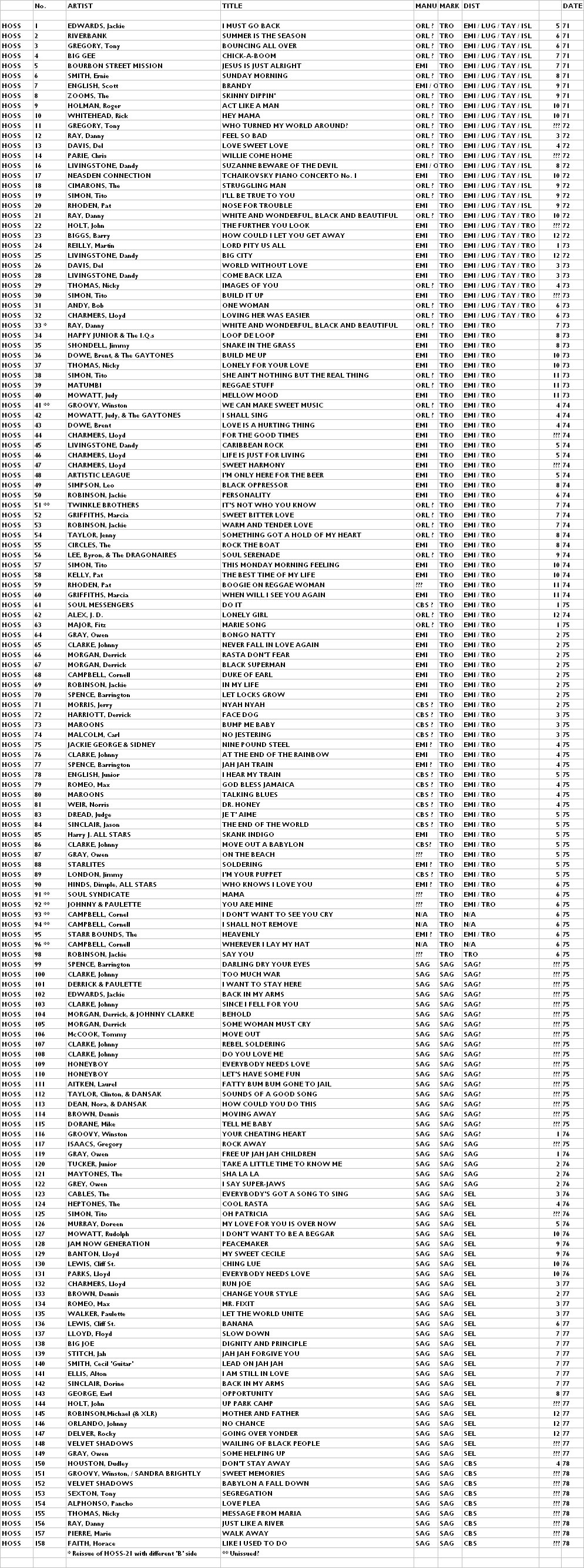


Copyright 2006 Robert Lyons.

